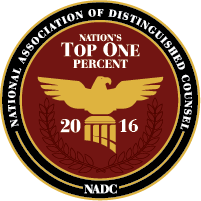Internet Fraud
With advances in technology have come increases in internet fraud involving the use of computer networks or devices to commit, further, or conceal a criminal offense. Internet fraud can take many forms, including crimes which target a computer network or device via the internet, such as viruses, malware, and cyber terrorism; crimes which use a the internet to further other crimes, such as cyber stalking, harassment, identity theft, and phishing schemes; and crimes which use the internet to conceal other crimes or criminal material, such as child pornography.
The federal government takes an aggressive stance toward combating internet fraud, which is investigated by several federal agencies, including the Federal Bureau of Investigation (“FBI”), the Computer Crime and Intellectual Property Section of the Department of Justice, the Cyber Crimes Center of U.S. Immigration and Customs Enforcement (“ICE”), and the Internet Crime Complaint Center, and is subject to serious penalties under federal and state statutes.
Given the high stakes involved, it is imperative that individuals facing an internet fraud charge choose an attorney with the knowledge and experience necessary to defend such a case. I have chosen to focus my practice on White Collar Crimes, including internet fraud. Over the last 40 years, I have earned a successful track record in high stakes white collar matters and have argued before the United States Supreme Court as well as other federal courts throughout the country. I fight hard to enforce the rights of my clients, and I believe in the integrity of that fight.
If you have questions or concerns about a federal internet fraud matter, I invite you to contact me directly to discuss it at 888-700-1555 or Patrick@MullinDefense.com. You will discuss your concerns with me personally—never an associate or a paralegal. In addition, you should know that your contact with me, and with my firm, is privileged under the law, regardless of whether or not you decide to retain my firm to represent you.







